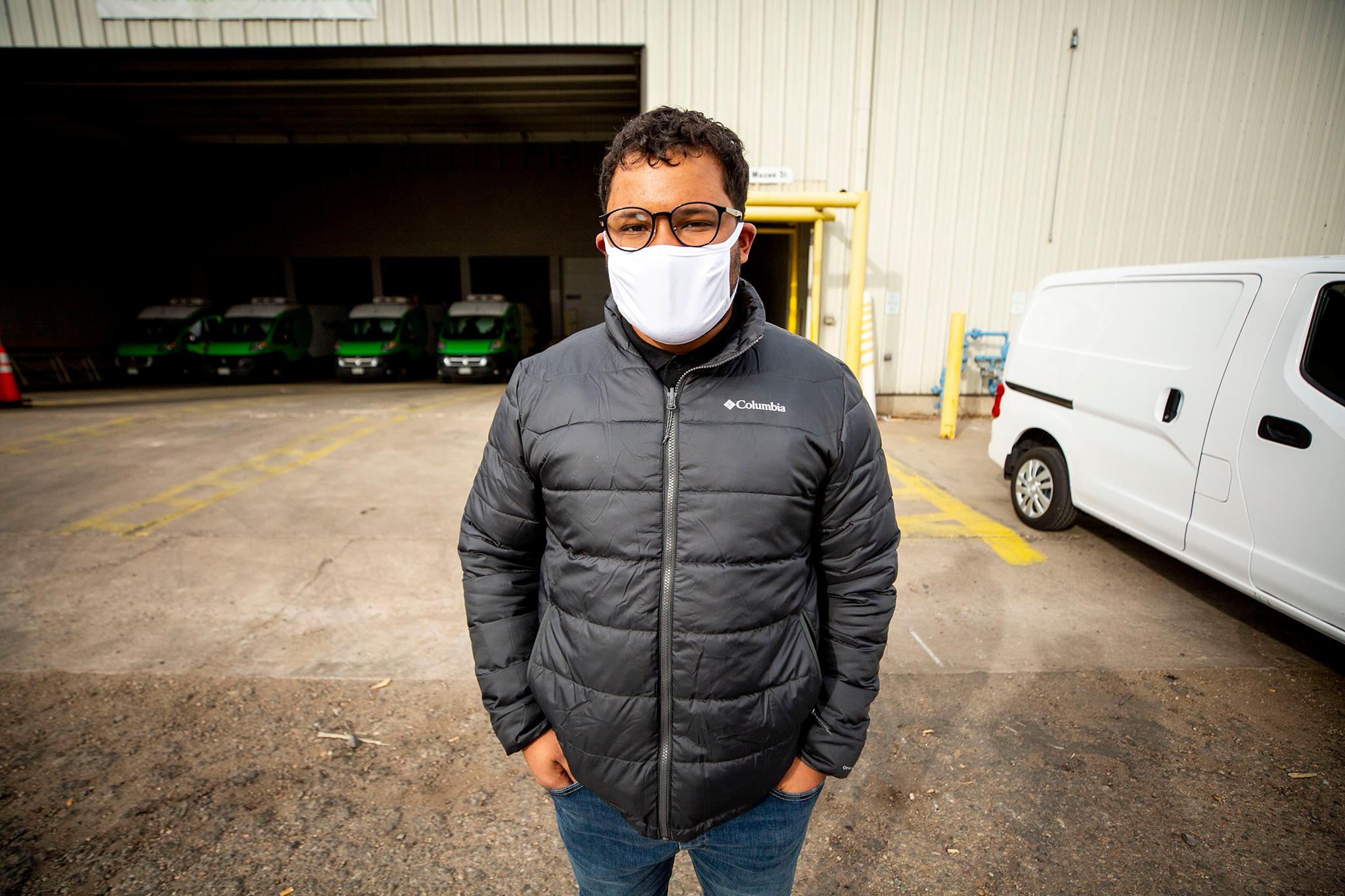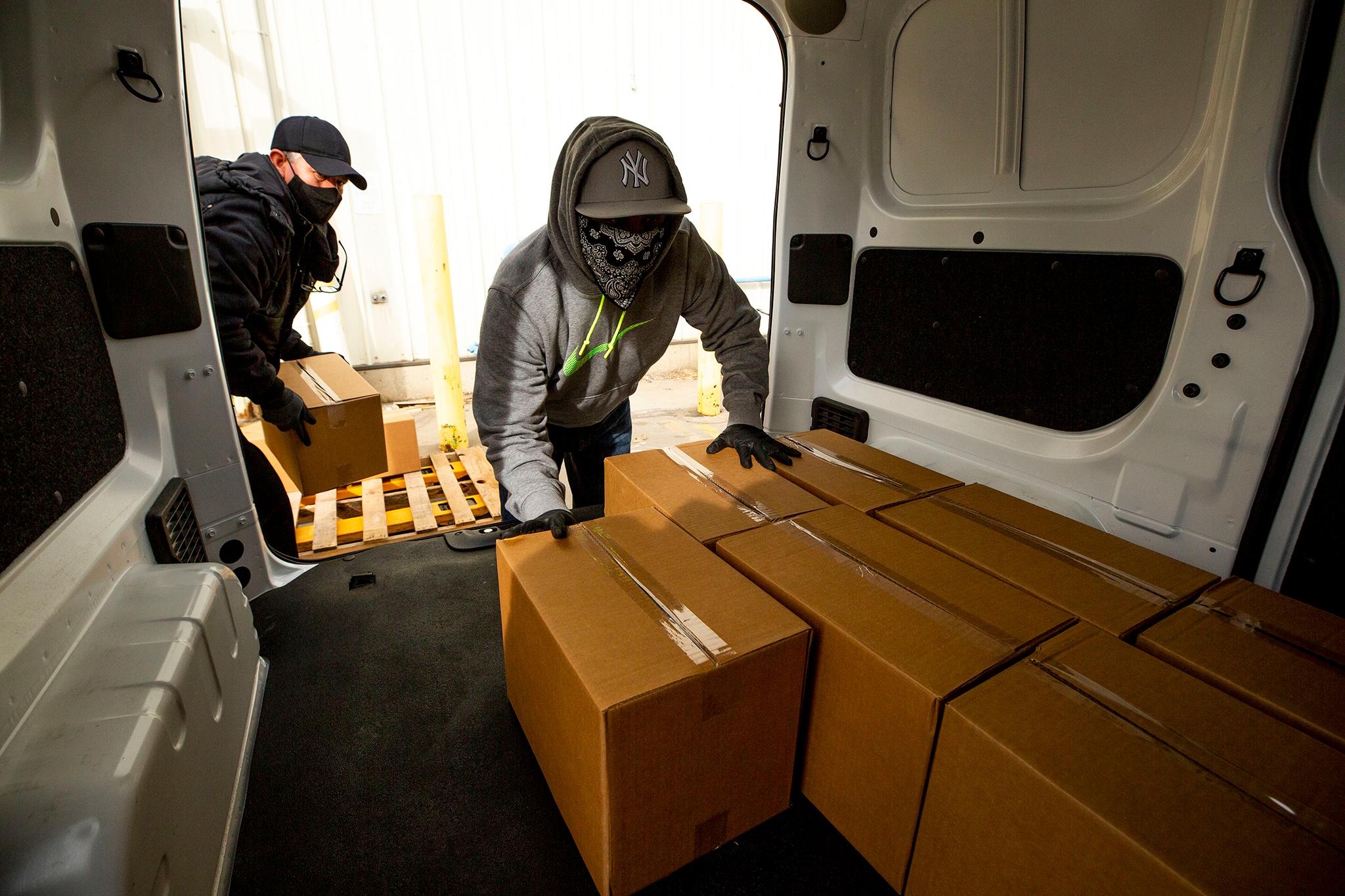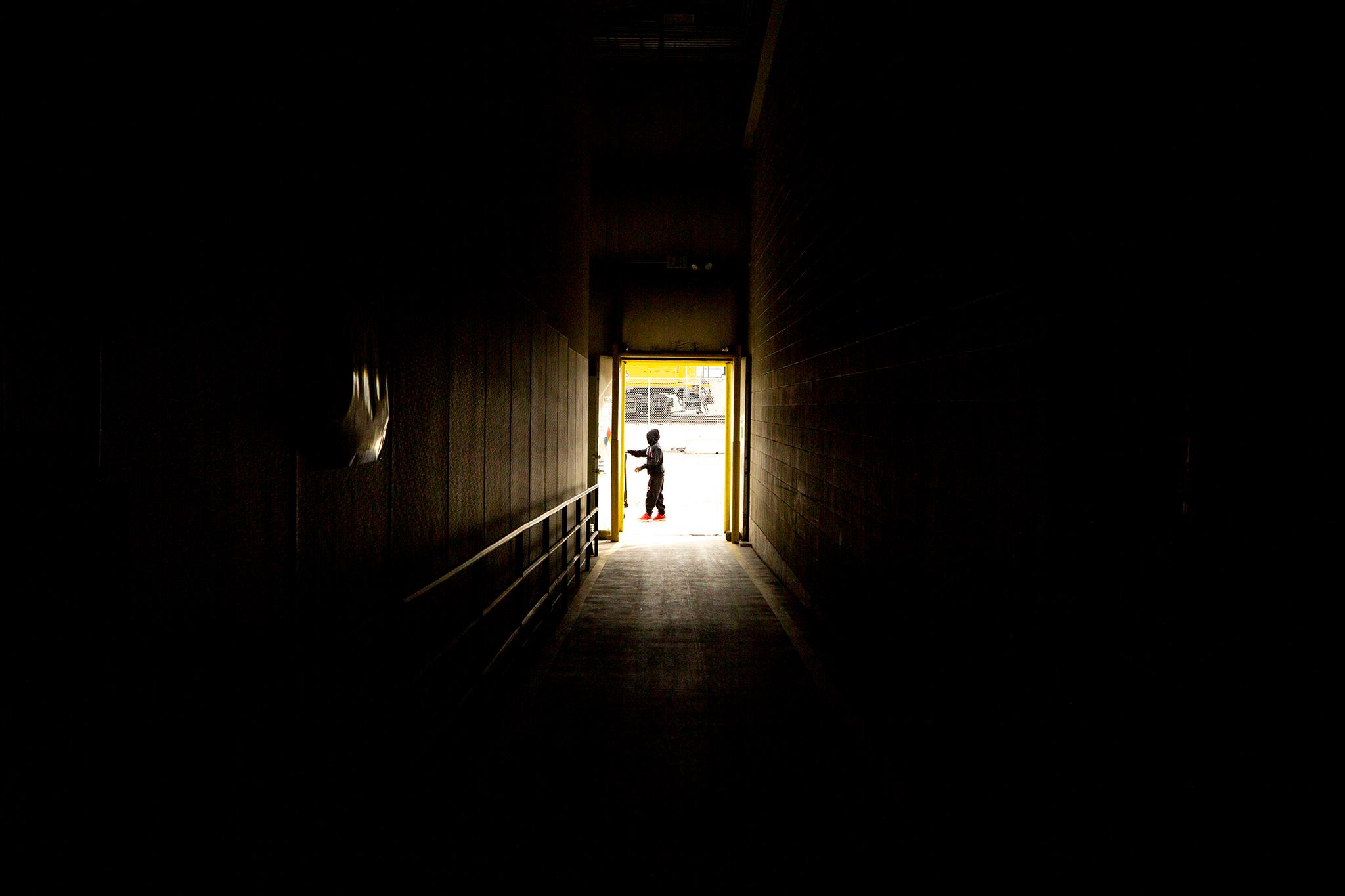First, the pandemic disrupted her daughters' education. School went online for Maru Gutierrez's fourth grader and high school freshman soon after COVID arrived in Denver in March.
The next month, the pandemic hit her family's finances. Gutierrez's employer, a company that offers adult Bible classes, cut back because of the economic impact of COVID and she lost her job in the department that supplied Spanish content.
Then the pandemic struck her family's health. Her husband, an engineer for a construction company, came down with COVID in mid-November. Soon Gutierrez and their two daughters were also ill. It took weeks for them to recover from the fevers and body aches.
Community activists who were looking for ways to support Denver families that have suffered on many levels because of the pandemic have hit upon food as "the most relevant, pressing issue," said Dom Barrera, chief of staff of the food delivery company Bondadosa.

Bondadosa has brought its logistics expertise to a group that includes the organizations Faithbridge, Transform Education Now, Young Aspiring Americans for Social and Political Activism and Denver Food Rescue. Together, they are known as the Colorado Food Cluster, and they have been getting boxes of free meals to families since the end of October. The project started with deliveries to families of 400 students, among them Gutierrez's daughters, who attend Denver schools that are part of the national KIPP charter. As of this week, the project had grown to include almost all the 2,600 KIPP students in Denver as well as about 5,000 students who attend STRIVE and DSST schools, Barrera said. He said the goal was to reach 15,000 Denver students by year's end.
Winna Maclaren, a spokesperson for Denver Public Schools, said the district of more than 93,000 students was in the early stages of coordinating with the Colorado Food Cluster and was continuing its own efforts to ensure students don't go hungry.
Theresa Hafner, who directs DPS nutrition services, said the district opened school kitchens as some students returned to in-person learning in the fall. The district has continued a program that started when schools shut down because of the pandemic in which families could collect grab-and-go meals at curbside at some locations, Hafner said.
"We provide meals to remote learning centers and child care centers," Hafner added. "We also work with our transportation department to deliver meals on weekdays to areas where students live. Our local nonprofit partner, Food for Thought, provides weekend meals at our curbside sites, and to many schools that have in-person learning."
None of KIPP's schools in Denver are among the 32 DPS curbside sites. Tomi Amos, who is the chief executive officer of KIPP Colorado Schools, said it is "monumental" that Colorado Food Cluster is delivering food to the doors of her schools' families.
KIPP parent Gutierrez said the weekly deliveries were particularly helpful when her family was sick with COVID and no one could get out, either to go to the grocery store or to a school meal pickup site.
But "even if you don't have COVID, you save money," Gutierrez said. And "you have more time to spend with your kids."
Every week the Colorado Food Cluster delivers enough ready-to-heat dinners and snacks for each student in a household for a week. The food is prepared by California-based Revolution Foods, which provides meals for such programs across the United States. The meal deliveries are funded by donors and by the U.S. Department of Agriculture's Child and Adult Care Food Program. Barrera said the cost of providing and delivering meals through the summer is $17 million.

The Colorado Food Cluster is recruiting delivery drivers from the families it serves, equipping them with a phone app that tells them where to go and what to drop off at each home.
"Our goal is to provide jobs within those families as well as the meals," Barrera said. He said Bondadosa hoped to build employment skills that families can continue to use after the pandemic, and was working with the Community College of Denver to find ways to ensure people received credentials for on-the-job learning with the company.
Bondadosa was founded by Ricardo Rocha in 2017 as a social enterprise, meaning most of its profits are reinvested to further its goals of using technology to help Colorado food producers, growers and small businesses get fresh, local food to customers. Bondadosa also incubates agriculture and sustainable transportation startups.
Since the pandemic, Bondadosa has participated in the Denver Metro Emergency Food Network, a coalition of volunteers, community groups and donors that during the first five months of the pandemic delivered more than 300,000 free meals to Denver households whose food security had been weakened by COVID-19 and by the pandemic's impact on the economy. Hispanics and other minorities have been disproportionately hurt by both the disease and its impact on jobs.
Barrera said the Colorado Food Cluster plans to work with traditional DPS schools as well as the district's charters such as KIPP. Barrera said the project began with KIPP because its members saw KIPP schools as serving some of the neediest families. Most KIPP students are students or color, and most qualify for free or reduced price school meals.
Amos, the KIPP chief executive officer, said many of the families her schools serve struggle to remain housed.
"Job security has continued to be a problem that has exacerbated food insecurity," Amos said, adding that the delivery driver jobs being offered by the Colorado Food Cluster was "another opportunity to think about this more holistically."
Amos said another bonus was that Revolution Foods, which prepares the meals that the Colorado Food Cluster delivers, includes menu items such as pupusas that are familiar and welcome in the homes of KIPP families. English and Spanish are most commonly spoken by KIPP families. Amos acknowledged being culturally sensitive was a challenge in a community in which families also speak Amharic, Arabic, Burmese, Nepalese, Russian, Somali, Swahili and Vietnamese.
Gutierrez, who is from Mexico, enjoys cooking. She and her husband, who is from Bolivia, shared some of their favorite recipes in a cooking demonstration at their daughters' school, back when classes were in person.
Gutierrez said the Colorado Food Cluster meals are healthy and tasty. Her teen, who has started to worry about her figure, sometimes deconstructs the Colorado Food Cluster deliveries to concoct her own salads or soups.
Gutierrez said one advantage of losing her job is that she now has more time to supervise her daughters' online learning, including trouble-shooting when they have problems connecting to the internet. She also has household chores to keep up with. But, she said, at least she doesn't have to plan and prepare daily dinners for her daughters.
"It's been really hard," she said. "Right now I feel like I need to be a teacher, I need to be a psychologist."
She said she tries to help her daughters, who miss seeing their friends, focus on the positive. She tells them, "We are in different times right now. But at least we have more time to spend together. It is another way to see this difficult time."












